Morning Devotion
Back to the Mountain Retreat
November 17, 2019
Hear the word of God found in Genesis Chapter 12, verses 1-4a:
“Now the Lord said to Abram, “Go from your country and your kindred and your father’s house to the land that I will show you. 2 I will make of you a great nation, and I will bless you, and make your name great, so that you will be a blessing. 3 I will bless those who bless you, and the one who curses you I will curse; and in you all the families of the earth shall be blessed.”[a]
4 So Abram went, as the Lord had told him; and Lot went with him.”
The word of the Lord.
These three and a half verses from Genesis zoom in on Abram’s call. I’m used to continuing to read and consider far beyond these verses, to get into the details of who Sarah and Abram were, how old they were, what happened when they got started on the journey. But by focusing in on these verses, it centers our attention squarely on the promises of God.
“I will make of you a great nation, and I will bless you, and make your name great, so that you will be a blessing. 3 I will bless those who bless you, and the one who curses you I will curse; and in you all the families of the earth shall be blessed.”
Abram and Sarai were being called to a new beginning, sent for something great. Sure, it was going to require them to leave some things and some people behind. It was going to require them to step out of their comfort zone. They didn’t even know where they were going yet.
Can you imagine God telling you, “Go to the place I will show you”? “God, what do you mean go to the place you will show me. I’m in the car with my stuff packed up. I need you give me the address to put in my GPS.”
Then, God saying: “Don’t worry about that. Right now, I just need to you open the garage door.” Then when you get out the door, God says, “OK, now I need you to back out of the driveway.” Then, you get on the street and God says, “OK, go to the stop sign.” And, it’s not until you are there that God tells you whether to go left, right, or keep straight.
Abram certainly faced some uncertainty. But, God did not give them a command without also giving them a promise.
I will make of you a great nation, I will bless you, I will make your name great…
I wonder…what are the “I wills” God is trying to produce in your life right now? What has the Lord promised you?
Where might you be saying “I can’t” and God is saying “I will”?
How often is this us? It’s difficult to walk away when God has not fully told us where we’re going.
God hadn’t told Abram and Sarai where to go. God said go to the place I WILL show you. I cannot imagine packing up my car backing out of the driveway, getting to the stop sign waiting anxiously to hear from God about whether to go forward, left, or right.
But, one thing I know for sure…the “I will” of God will lead you to more reliable places than anywhere Google Map, or Garmin, or Siri, or the Amazon Echo, or Mapquest can take you.
But, here’s the thing. The enemy will constantly try to get you off course. While God is declaring “I will.” The enemy will be whispering “you can’t”
Maybe you struggle with consistency and follow-through, self-confidence, or fear. In the very place you struggle, the enemy will try to wear you down. Try to convince you the promises of God aren’t real, at least not for you. That they are unattainable or not worth the effort.
It’s our natural inclination to return to our own power. That’s a trick of the enemy. If we focus on what we can or cannot do, we miss what God can and what God is already doing in our lives.
To this temptation that tries to break us down, we are called to respond, this is not about what I can or cannot do, this is about what God WILL do!
Because, let’s face it, we can’t do it – at least not by our own power.
But, by the grace of God, all of our “I can’ts” turn into God’s “I wills”.
This call from God to Abram is far more about God’s faithfulness than it is about Abram’s. In our lives, we aren’t reliant on our faithfulness, we are assured of God’s faithfulness.
Here’s the thing, we know the journey won’t be without challenges. Abraham makes several mistakes along his journey. Just in these three and a half verses, we have a hint at a challenge to come.
God told Abram to leave his family and go but who does he have tagging along – Lot! Before God can even get them out of the door good, there is already something happening that’s going to be trouble on the journey.
Not only will there be trouble and bad decisions along the way, it will be a long, long time before they begin to see some results. Reason to begin to wonder if this thing is ever going to happen. So, God continues to remind them of the promise along the way. God reviews the “I wills” with Abram many different times.
They hear the “I wills” in Chapter 12, go a little ways, experience a little trouble, then in Chapter 13, God reviews the “I wills”, they go even further, start to have some doubts, Chapter 15, “I wills”, they are closer to the promise of God but still not there yet, Chapter 17, “I wills”. Over and over, God reminded them of the promises.
Likewise for us, just when we start to lose hope, the Lord, will offer a little reminder of the plan.
As we enter our last day of this journey together, our theme for today is “Sent.” As we prepare to move towards reentry and the return home, I wonder what “I wills” God has for us. What are the places the Lord is telling us to go?
I wonder…are we ready to go?
One last thing from our text and then I’m done. Immediately after hearing from the Lord, verse 4 says…”So Abram went.”
Not, and so Abram procrastinated.
Not, and so Abram discussed it with everybody he knows.
Not, and so Abram posted it on Facebook to see how many people clicked like, love, laugh, cry, or frown.
And so Abram went.
As we hear the “I wills” of God to us, are we ready to go?
If our story was chronicled, would it reflect us hearing the “I wills” of God and then say…and so they went. Or would it say we heard the “I wills” of God and then we met about it and talked about who should do it and then went and worked on something else and then met about it again and talked about it some more.
Have we packed our bags? Do we have the right people along for the journey? Do we believe God will do what God promised? Do we have a mindset limited only to our faith in ourselves or are we trusting in the faithfulness of God? DO we hear the call from the Lord today? Are we ready to go? Do we believe the Lord will bless our path?
Whatever the Lord is sending you too likely won’t be easy. But we would be hard pressed to find a time in scripture where God called someone to something comfortable. Just asked Sarai and Abram. But, we are reminded, the one who calls us is faithful and God WILL do it. So, let’s go.
Amen.
–Rev. Tiffany C. Chaney
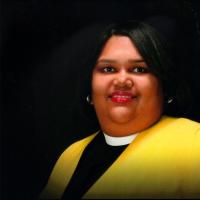
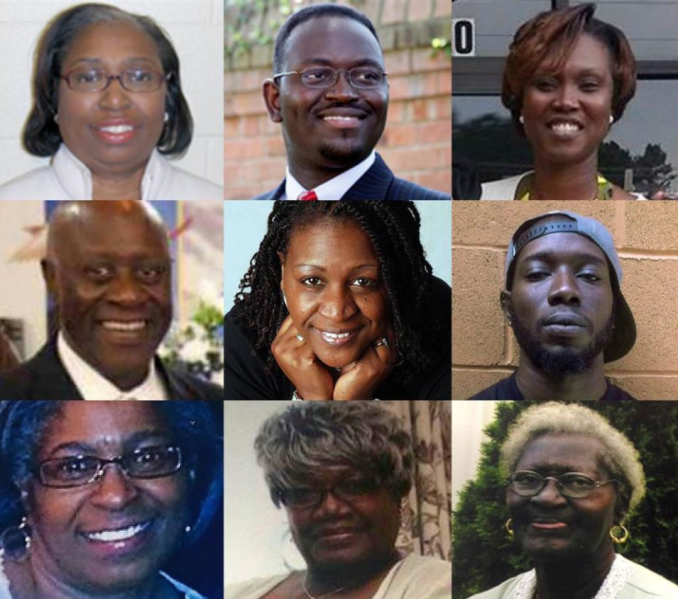
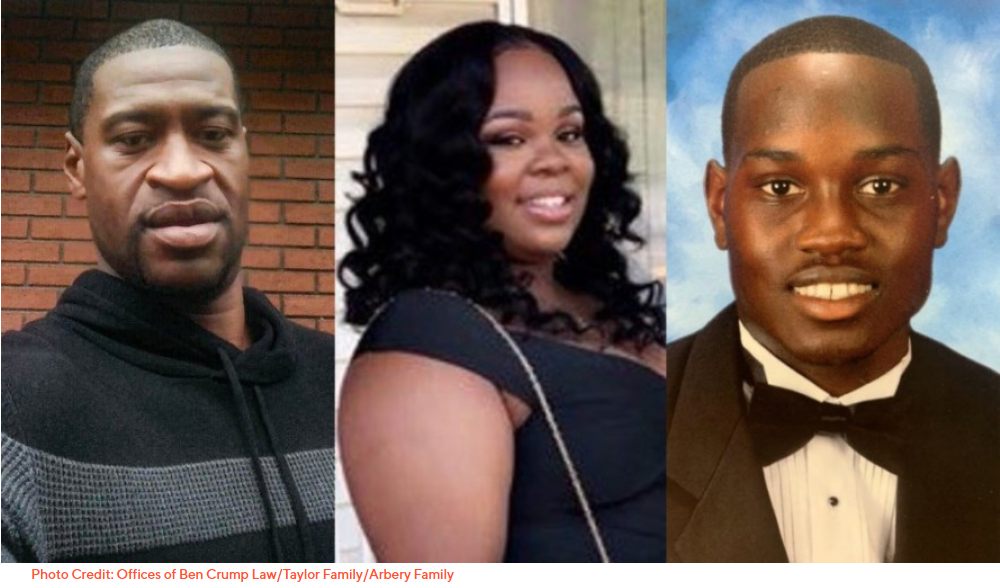
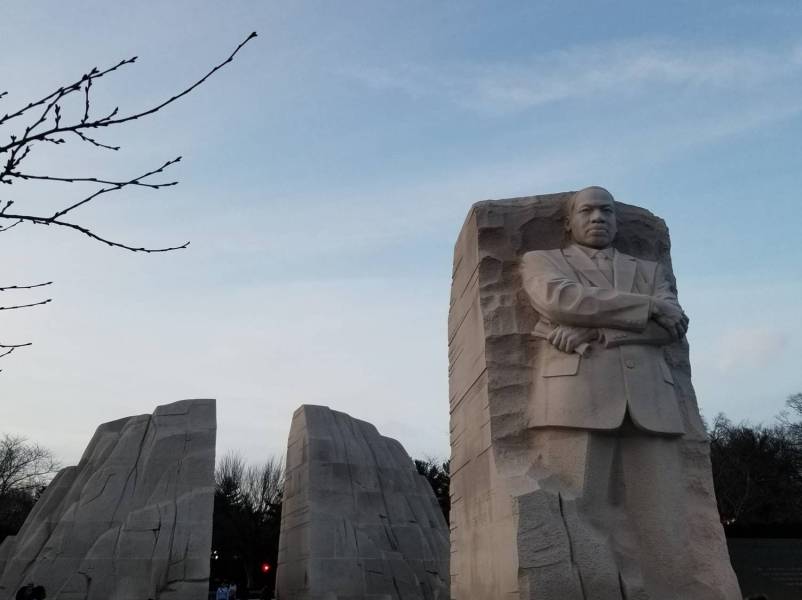
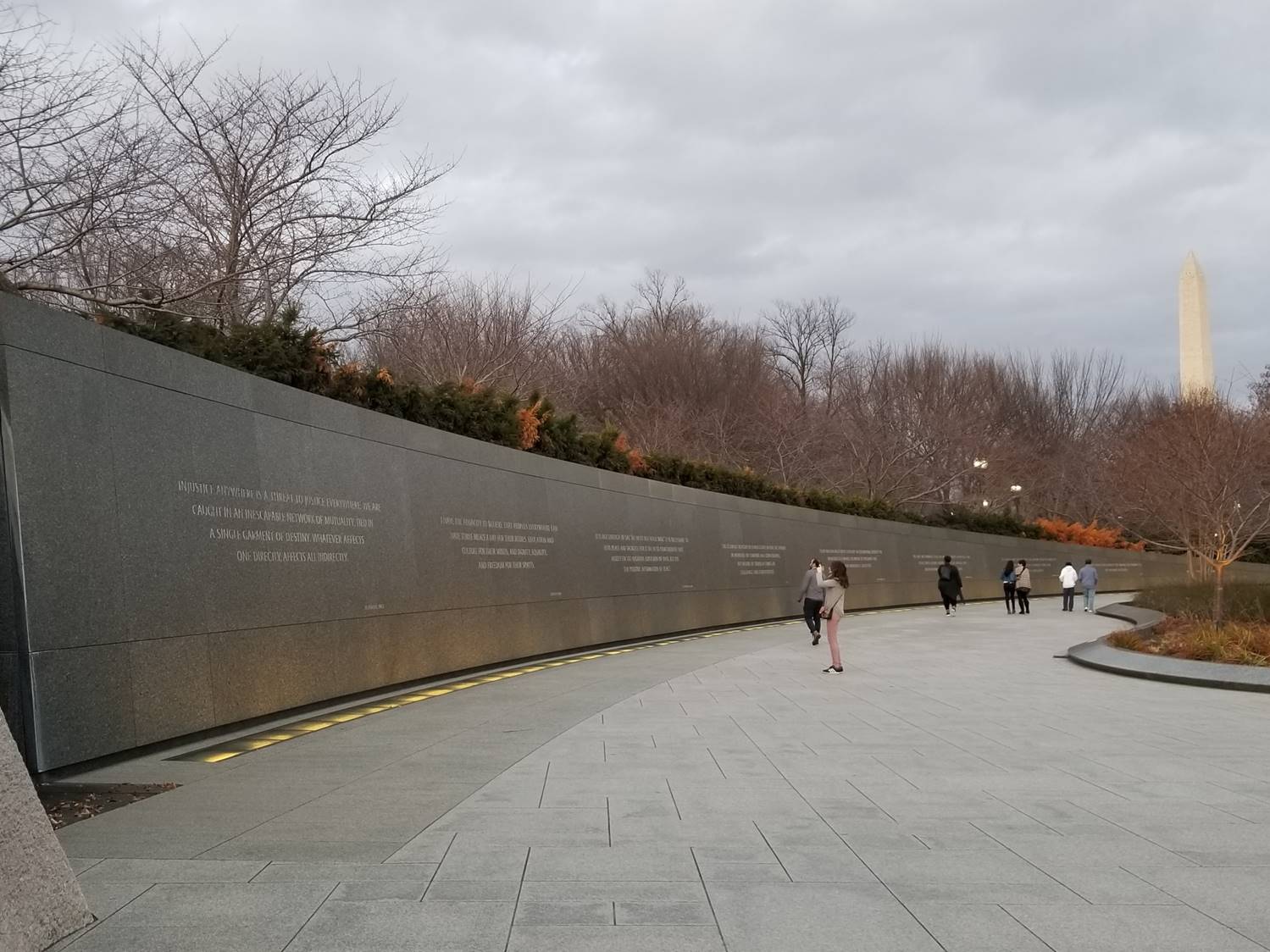
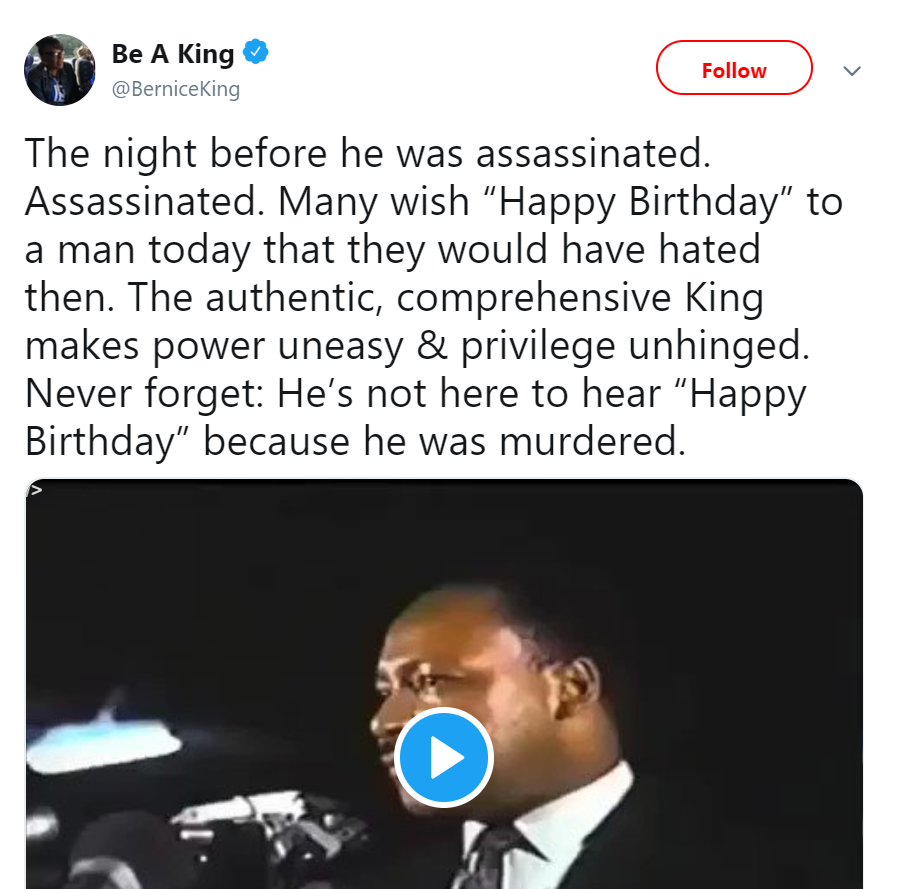






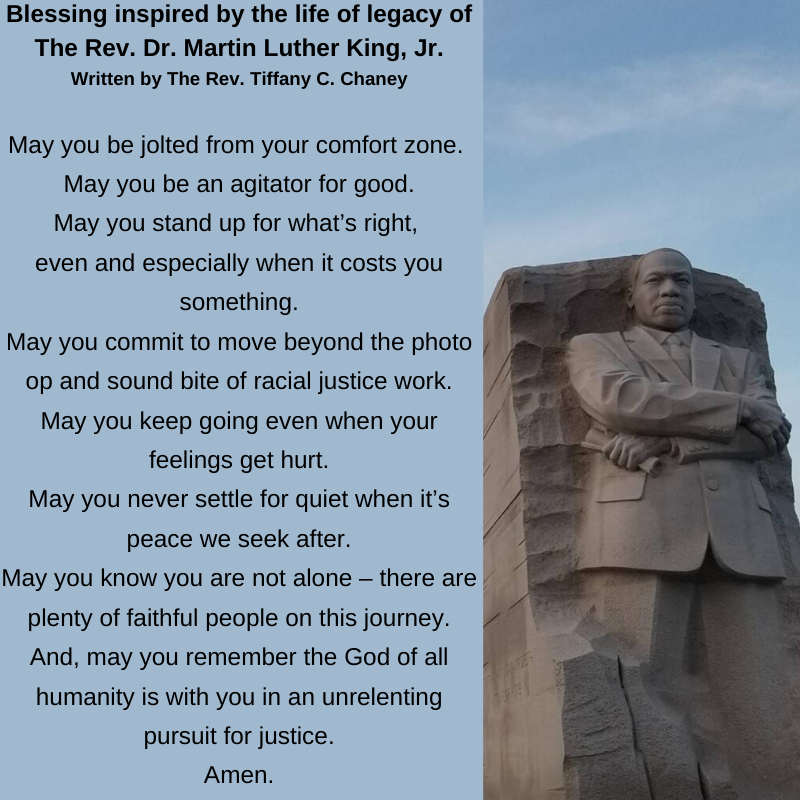

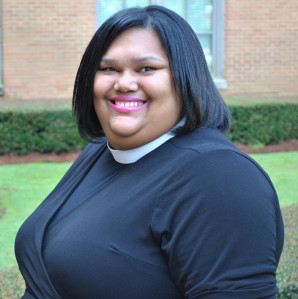
 Pastor Chaney – center, in purple – with “Dinner and Dialogue” participants.
Pastor Chaney – center, in purple – with “Dinner and Dialogue” participants.